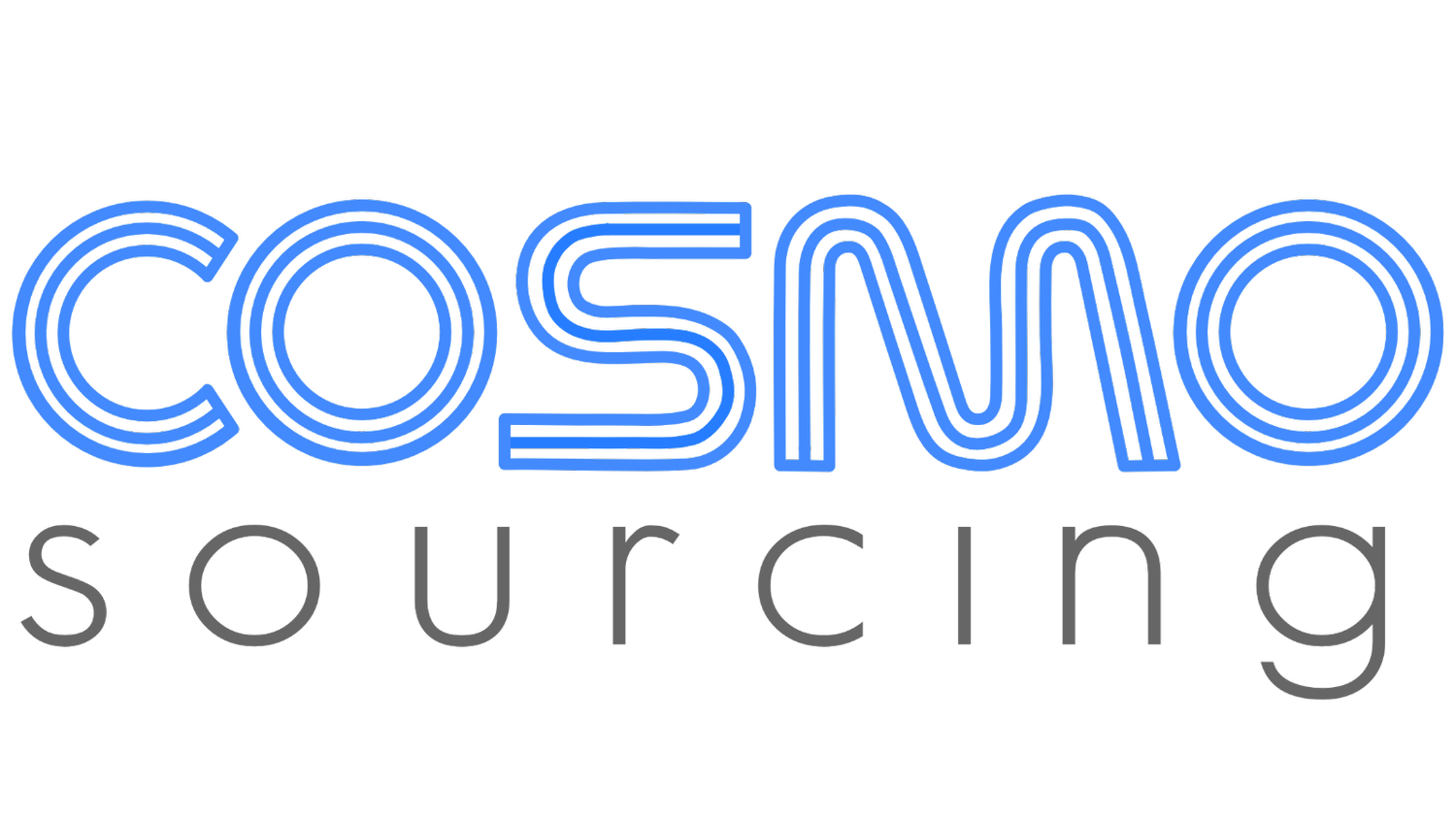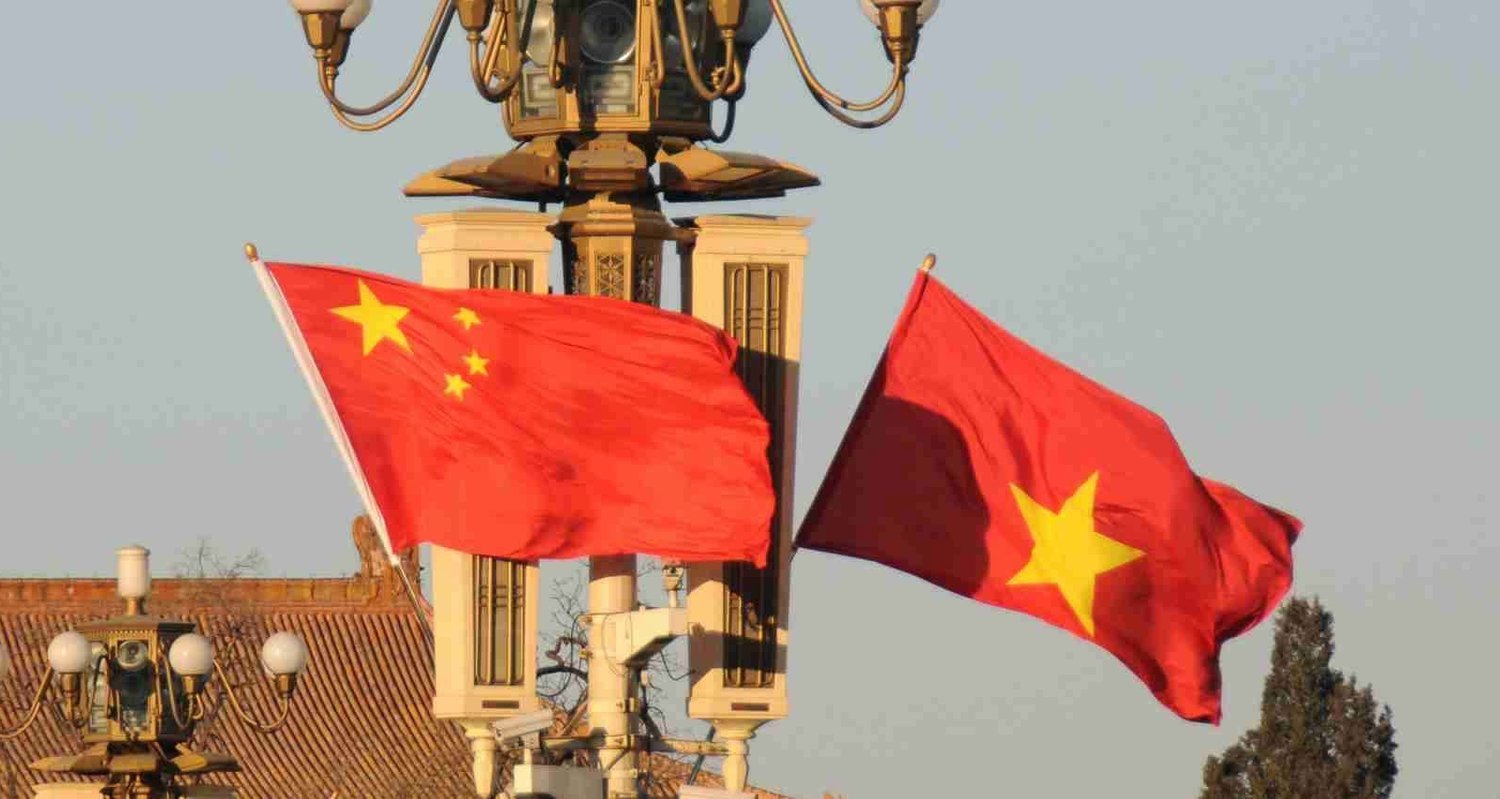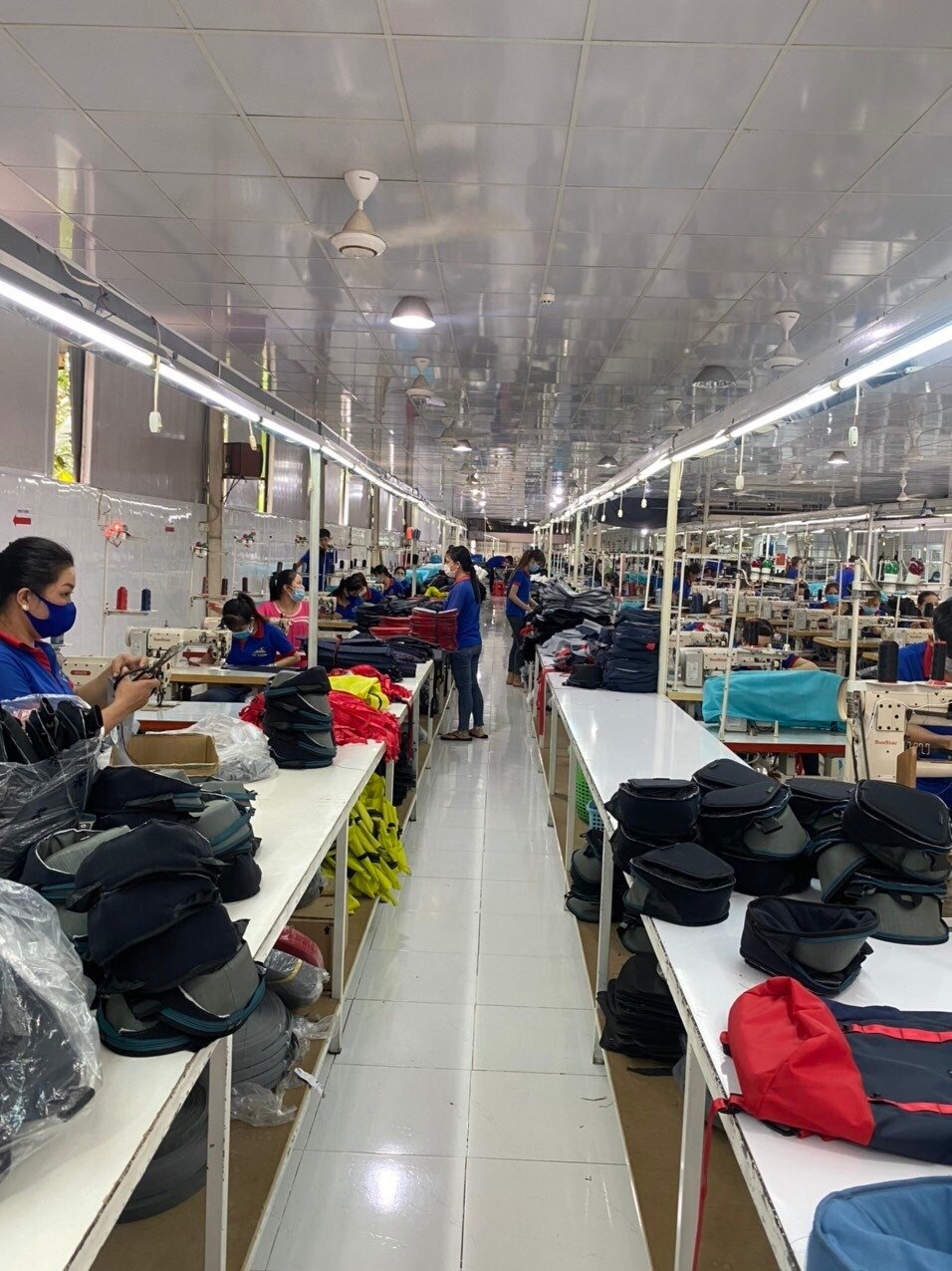Vietnam Vs. China For Product Sourcing // Complete Guide
What are the pros and cons of sourcing in Vietnam? What is different when working with suppliers in Vietnam vs. China? Are there good resources to find suppliers in Vietnam? What do you need to know about factories in Vietnam and how they work? We cover this and more in our guide on product sourcing in Vietnam.
With the double whammy of the trade war and the Coronavirus, there has been a huge interest in sourcing suppliers outside China. However, sourcing outside of China isn’t the case for every product. So, who do you know that can help you source products outside of China, and which country is best for you?
Over the last month, the Team at Cosmo Sourcing has spoken daily with clients whose supply chains have been disrupted by factory shutdowns caused by the Coronavirus and who need to find a new supplier outside of China.
Unfortunately, we must decline many potential clients for various reasons. The most common reason is simply that a suitable supplier exists in Vietnam. However, other clients have unrealistic expectations of how factories work and think it’s as easy as in China. These clients are unaware of the differences between finding a suitable manufacturer in Vietnam and one outside of China, so we need to be very careful to understand this before starting a project.
While most of my experience sourcing outside of China is in Vietnam, Cosmo Sourcing has done a few projects in Indonesia, Malaysia, and Thailand. We have also consulted with experts in sourcing from other countries, including India, Taiwan, the Philippines, and Mexico. Based on this experience, I have created a guide that outlines my observations, including products sourced and manufactured outside of China, and more.
What products should you source outside China?
If you are looking to source suppliers and manufacturers outside of China, you must be mindful that non-China countries only specialize in a few industries. No country is a one-stop shop for everything like China, and no other country even comes close.
Popular items are sourced and manufactured in Vietnam.
In addition to Vietnam, we have written a detailed country-by-country guide on our partner site, Sourcing Hub, covering what can be manufactured outside of China. You can read the guide here: Product Sourcing Outside China // 13 Best Alternatives to China Manufacturing.
Products manufactured in Vietnam include:
Clothing
Furniture
Bamboo items
Apparel
Garments
Shoes
Plastic goods
Stamped metal parts
Leather goods
Wooden goods
Rubber and silicone goods
Packaging
Cut and sew items
And much more
You can read our detailed guide on Products Made in Vietnam at this link.
You need to focus on price-sensitive items in the market where they are sold, as well as on non-time-sensitive items. China has one of the most efficient supply chains globally, so you should understand that sourcing, manufacturing, and shipping your product in Vietnam will take longer. Other countries do experience delays, and suppliers do not rush to produce it. Additionally, the cost tends to be lower in Vietnam than in China for many products, so if you are dealing with a reputable supplier, the primary factor that drives customer purchasing decisions is cost.
Things to keep in mind about sourcing in Vietnam
If you are looking outside China for suppliers, you must understand that the process is different. One of the most common mistakes I see is buyers expecting other suppliers in Vietnam to operate in the same manner as they do in China. Unfortunately, it does not work the same way, and if you have only bought it from China, you need to understand the differences.
From my experience, these are the main misconceptions and difficulties that clients have about sourcing in Vietnam:
Slow response times
Private label and Dropshipping are much more difficult.
The need to work with export-focused manufacturers
Different culture
Alibaba isn’t the best resource.
Supply chains still rely on China.
Scalable manufacturers are more challenging to find
Slower response times when sourcing in Vietnam vs. China
China is highly competitive; almost every industry and product niche has multiple suppliers that compete directly against each other. Therefore, almost every factory will have a sales staff dedicated to responding quickly and thoroughly to get your business.
In Vietnam, most factories have a few engineers or other staff members who handle sales as a secondary role. As a result, they will send in quotes when they get around to it, but not as soon as possible.
At Cosmo Sourcing, we budget up to two weeks from when we send out RFQs, and we must pursue and follow up with them aggressively. We post a few requests in China and let suppliers come to us. This change in pace caught many sourcing in Vietnam off guard for the first time.
ODM & private-label products in Vietnam are much harder to find
The overwhelming majority of factories in Vietnam are OEM or Contract manufacturers. These factories expect you, the buyer, to have the design files for your product already made. The factory will make your product according to your specifications. Most factories we work with cannot take a product and manufacture it, nor can they provide a product specification sheet for you. Very few factories outside Vietnam have their designs and products ready to go.
If you are unfamiliar with the terms, Original Design Manufacturers (ODM) means that the factory produces its designs in-house and sells them to buyers. This practice is widespread with Private label businesses and Drop-Shipping businesses. As a result, finding a suitable supplier for private labels in Vietnam is very challenging, if not impossible, and we have to decline many requests.
When speaking with potential clients sourcing in Vietnam for the first time, I emphasize the differences and ensure they either have a product spec sheet created or are willing to collaborate with someone who can produce one. For example, Cosmo does not undertake dropshipping projects outside of China, and we have informed people about the challenges associated with private labeling.
Focus on finding export-focused manufacturers in Vietnam.
Just because a factory makes an item does not mean it’s a suitable supplier. You need to understand that making an item for the domestic market differs from making an Item for the international market. When selecting a factory, ensure they have a proven track record of exporting and are equipped to produce products that meet the market’s quality standards and regulations, ultimately resulting in a satisfactory outcome.
A factory must take extra steps and obtain additional certifications to export and import its products. For example, in the EU, CE certifications are required, and many products must undergo lab testing to be sold. Additionally, if they involve electricity, UL certifications are also necessary. So please ensure you work with a factory that knows what it is doing.
Additionally, factories and suppliers must understand the quality expectations that consumers in the destination country expect. It’s much harder to meet these standards if the factory lacks previous experience exporting to the destination country.
That said, we have worked with factories that have not exported before. However, starting that process requires a significant amount of work to bring a product to market. Sometimes, this has required us to obtain a certification, which the client has paid for out of pocket. For reference, a client recently spent over USD 40,000 and four months obtaining UL certification for a factory we selected for them.
Vietnam has a Different Culture from China.
Every culture worldwide is distinct in its business practices and interactions with foreigners. Please do not expect it to be the same as in China or your home country. I can’t offer much singular advice on how Vietnam differs from Mexico or how India differs from Malaysia.
That being said, I’ve done business in over a dozen countries, and some universal values apply to every one of them. Be polite yet professional, be quick to compliment, and slow to criticize. Always strive to understand the local culture and make the most of the opportunities it presents. Always be curious and not afraid to ask honest questions. I’ve found that people are proud of their heritage almost everywhere and are happy to share it with others.
Many Components Are Still Sourced From China.
Even if your product is manufactured in Vietnam, many of its components, parts, and raw materials are still sourced from China.
No other country has a more diverse and vertically integrated supply chain than China, and the next closest is not even in the same league. Although the bulk of manufacturing and final assembly is conducted in Vietnam, many components and sub-assemblies still need to be sourced or manufactured in China. For example, right now (Feb 2020), we are having an issue with getting backpacks finished in Vietnam because the zippers and some plastic latches are sourced from China, which has shut down due to the coronavirus.
There are many similar cases worldwide. For example, our wooden furniture is made in Vietnam or Malaysia, but the metal handles come from China. Are you doing plastic injections in Taiwan or Thailand? You still probably need to order the mold from China. For many products, you are only outsourcing the final assembly in Vietnam.
Use Alternatives to Alibaba to find suppliers in Vietnam.
Alibaba is so popular among Chinese suppliers and foreign buyers that it’s pretty much the default method for finding suppliers in China. Many people have only used Alibaba and have had great success finding a reliable and reputable supplier for their business. This is not the case in Vietnam.
Although Alibaba has a section for Vietnam, the suppliers tend to be few and far between, with a near non-existent response rate. For instance, Vietnam strongly distrusts all things Chinese, and almost no factory uses Alibaba. This is the same for many other countries. As a result, it’s Best to use Alibaba Alternatives for Vietnam.
Beyond Vietnam and China, we compiled a list of over 50 Alibaba alternatives from around the world to find suppliers outside of China. We cover Alibaba Alternatives in Vietnam, India, Thailand, Malaysia, Indonesia, and more. Many of these are not true Alibaba alternatives, but rather serve as a database, a B2B suppliers list, and more. Some Alibaba alternatives offer features similar to Alibaba’s RFQ feature, while others provide direct contact information, allowing you to communicate with factories.
Finally, don’t forget that Google works well when searching for suppliers. Google, which is banned in China, is not banned in the rest of the world. So, you can Google “[product] manufacturer/suppliers in [country],” and you’ll get numerous results.
Lower MOQs are more difficult in Vietnam.
One of the major issues when working with Vietnamese suppliers is that it is significantly more challenging to start small and scale up gradually.
In Vietnam, for instance, we do not undertake any clothing, apparel, or garment projects that involve fewer than 2,000 units. This is because factories in Vietnam often refuse to provide quotes for small orders, and those set up to handle small orders can’t scale up to larger ones.
Many clients are accustomed to working with China, where they can place a small initial order of 50-100 units and then place a larger order later. Unfortunately, this is a unique phenomenon in China and is difficult to find outside of China, including in Vietnam. The difficulty in ordering a low MOQ is mainly for large factories; several smaller factories can produce it, but scaling up will be challenging, assuming your product takes off.
Final Thoughts
If you keep your mind and options open, you can find great suppliers in Vietnam. However, you must also keep each point in mind when sourcing and allow for flexibility. Unfortunately, many people don’t have the time or flexibility.
Unfortunately, many businesses fail to prepare, rushing and scrambling to find alternatives to China. Rushing is still doable, but the results won’t be the best. For optimal results, consider consulting with an experienced sourcing company or agent who can offer you the best on-the-ground advice.
Cosmo Sourcing // Your Trusted Partner In Vietnam
If you want to source from Vietnam, contact the Cosmo Sourcing team; we have been helping clients source from Vietnam since 2014. Cosmo Sourcing has the skills and the team to find you the best supplier possible. We are also established in China and are among the few companies that can source suppliers in both China and Vietnam. Pick the one you think is best.
Our Vietnam Sourcing services allow you to access new manufacturers that you would not be able to in China and avoid Tariffs. Our services are designed to take your idea, turn it into a product, and ship it to its final destination. Cosmo can handle everything from creating a product spec sheet to validating, sourcing, ordering, evaluating samples, arranging inspections, finding freight forwarders, ensuring quality assurance, negotiating, and shipping. We aim to handle every single step of your business in Vietnam for you.
If you start a new business, finding products and suppliers for your products is one of many things you need to handle. Our services are designed to handle every aspect of your business in China and Vietnam, allowing you to focus on growing your own business.
We have helped clients from Fortune 500 companies, brick-and-mortar stores, FBA sellers, and brand-new businesses. So don’t hesitate to contact us and let us know how we can help you.


